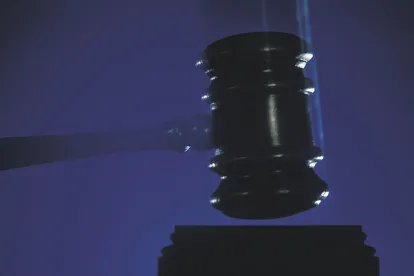In Omnicare, Inc. v. Laborers District Council Construction Industry Pension Fund, No. 13-435, 2015 WL 1291916 (U.S. Mar. 24, 2015), the United States Supreme Court addressed the circumstances under which a claim alleging that an issuer made a false statement of opinion in a registration statement suffices to state a claim for relief under Section 11 of the Securities Act of 1933 (“1933 Act”), 15 U.S.C. § 77k. The Court held that (1) a statement of opinion does not constitute an “untrue statement . . . of fact” in violation of Section 11 merely because it is ultimately proven incorrect and (2) a statement of opinion which omits material facts about the issuer’s knowledge may be misleading if the omitted facts conflict with what a reasonable investor would infer from reading the statement in context. The Court’s decision resolved a split in the Circuits and may spawn a new wave of “omission” litigation under the 1933 Act.
Plaintiffs are a class of investors who purchased Omnicare stock. They brought a claim against Omnicare under Section 11 alleging false and misleading statements and omissions in a registration statement that Omnicare filed in connection with a public offering of common stock. Two sentences in that registration statement addressed Omnicare’s compliance with applicable legal requirements: (1) “we believe our contract arrangements . . . are in compliance with applicable federal and state laws” and (2) “We believe that our contracts . . . are legally and economically valid arrangements . . . .” The federal government later filed suit against Omnicare for violating anti-kickback laws. Plaintiffs argued that, as a result, Omnicare’s representations about its legal compliance were “materially false” and that Omnicare had “omitted to state [material] facts necessary” to ensure that the registration statement was not misleading. Omnicare filed a motion to dismiss.
The United States District Court for the Eastern District of Kentucky dismissed the complaint for failure to state a claim. The court treated Omnicare’s statements as statements of opinion, not fact, and held that the complaint failed because it did not plead that Omnicare knew the statements were false when it made them.
As previously reported, United States Court of Appeals for the Sixth Circuit reversed. Although the Sixth Circuit acknowledged that the statements at issue were opinions, rather than facts, the court held that plaintiffs only needed to allege that the stated belief was “objectively false” to survive a motion to dismiss. Plaintiffs did not need to allege that anyone at Omnicare knew the statements were untrue when they were made.
The Supreme Court reversed and remanded. The Court first noted that the Sixth Circuit’s holding improperly conflated facts and opinions. The Court acknowledged, however, that even statements of opinion contain some facts. First, every statement of opinion affirms the fact that the speaker believes in his or her stated opinion. Second, statements of opinion may have statements of fact embedded within them. The Court noted that a party could be liable under Section 11 either if the stated belief was not sincerely held, or if a supporting fact contained in that statement were untrue. The Court held, however, that the statements at issue in this case were pure statements of opinion. The allegation that the belief was later found to be incorrect did not give rise to liability.
The Court, though, went on to observe that Section 11’s omission provision may be relevant to determining whether a statement of opinion is misleading. The Court noted that a reasonable investor could understand an opinion statement to convey facts about the speaker’s basis for holding the stated view. The Court acknowledged that an opinion statement need not disclose all facts that lean against the stated opinion. However, if an omission conflicts with a reasonable investor’s fair reading of the opinion, in context, then the statement is misleading under Section 11.
The Court remanded the case for application of this standard, noting that (1) plaintiffs cannot proceed without identifying omissions in the registration statement, (2) those omitted facts must be material to a reasonable investor and (3) the lower court must determine whether any alleged omissions render the statement misleading because the excluded fact shows that Omnicare lacked the bases that a reasonable investor would expect to support the statements.
The Supreme Court’s decision settles the circuit split that arose when the Sixth Circuit issued its opinion in this case, which conflicted with decisions made by the Second Circuit and Ninth Circuit. Practically speaking, the Court’s decision provides a detailed roadmap to plaintiffs seeking to challenge statements of opinion in registration statements that turn out to have been optimistic by alleging that the registration statement needed to disclose more about the process under which the company sought to verify and support the opinions. Companies should revisit whether it is prudent to issue statements of opinion at all in registration statements going forward.




 />i
/>i

